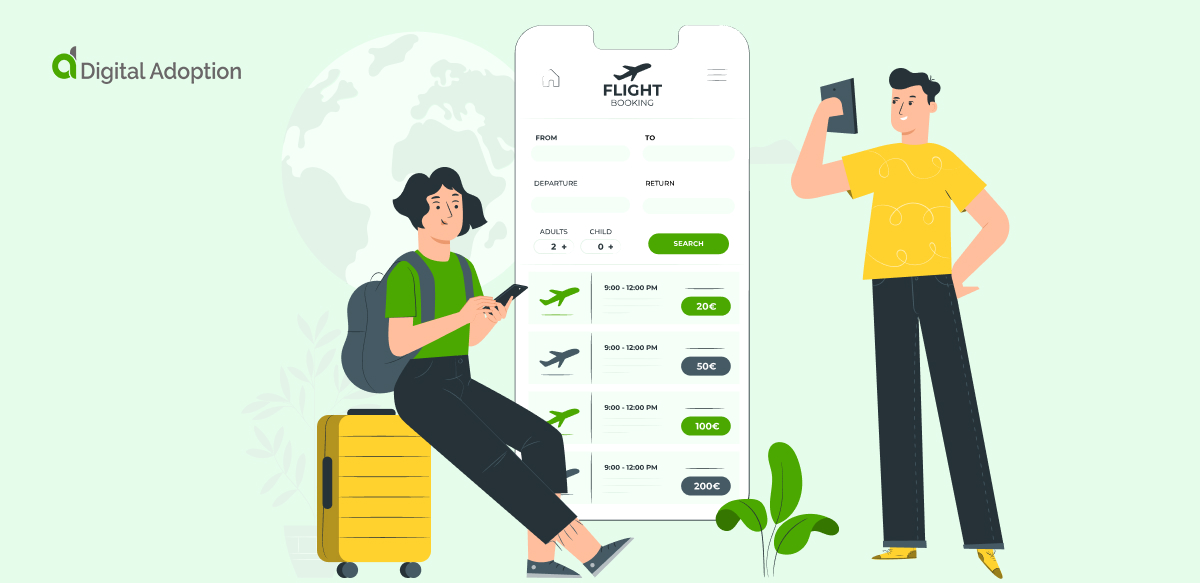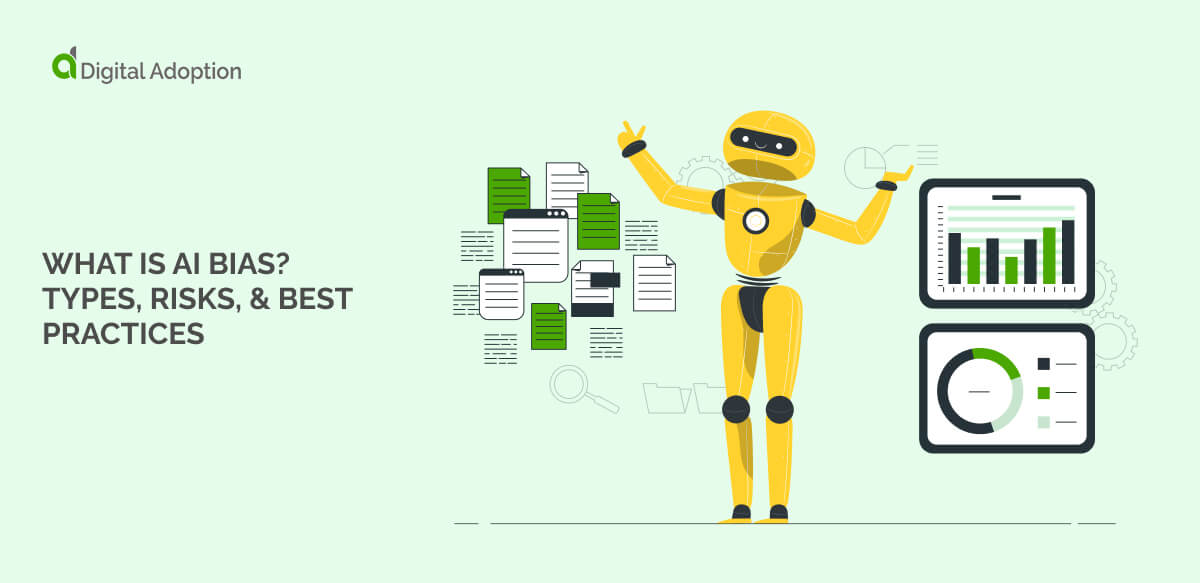In recent years, the travel and tourism sectors have been under pressure to modernize and digitize their operations and offerings. With the rise of digital-native companies, such as Airbnb and Uber, traditional travel players have been forced to reevaluate their businesses and adopt digital solutions, processes, and technologies to remain relevant and competitive. This shift towards digital is often referred to as digital transformation or DX and can even help develop a more sustainable industry footprint.
Digital transformation (DX) is having a profound impact on the travel industry. Digitally enabled growth helps develop the entire tourism cycle through various forms of digital disruption. Digital transformation considers everything from the customer journey, customer preferences, sustainable development goals, and efficient decision-making to overhaul business processes and revolutionize tourism and travel.
In this blog post, we’ll explore how DX impacts the travel industry and some specific ways it’s changing how we book travel. We’ll also discuss some of the industry’s challenges in its DX journey.
How Is DX Impacting The Travel Industry?
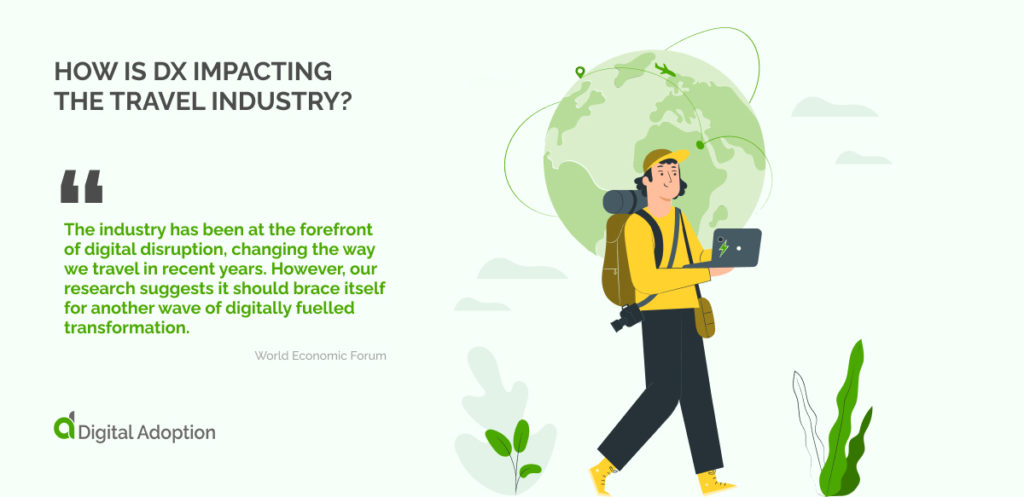
DX is impacting the travel industry in several different ways. First and foremost, it’s changing how travelers research and book their trips. In the past, most people would go to a travel agent to plan their vacation. However, with the advent of the internet, travelers can now do their research online. They can read reviews, compare prices, and book their flights, hotels, and rental cars without ever speaking to a human being.
A recent report by the World Economic Forum stated, “The industry has been at the forefront of digital disruption, changing the way we travel in recent years. However, our research suggests it should brace itself for another wave of digitally fuelled transformation.”
This shift towards self-service has had a significant impact on traditional travel companies. For example, many airlines have Eliminated or reduced fees for booking through their website instead of through a call center. Hotels have also started to offer more self-service options, such as check-in kiosks and mobile check-in. And tour operators are increasingly offering digital booking options as well.
In addition to changing how travelers book their trips, DX is also changing how they take them. Thanks to advances in mobile technology, travelers can now use their smartphones and tablets to do everything from checking in for their flights to ordering room service at their hotels. They can even use apps like Citymapper to navigate unfamiliar cities without carrying around a paper map.
The rise of mobile technology has also impacted how people interact with each other while on vacation. For example, social media platforms like Instagram and Snapchat have allowed people to share real-time photos and videos of their experiences with friends and family members. This has changed how people document and remember their trips – rather than waiting until they get home to develop a photo album or write a blog post about their journey, they can share highlights as they happen.
While there are many benefits associated with DX in the travel industry, some challenges also need to be addressed. Data privacy is an example of one of the industry’s biggest challenges. As more companies collect data about their customers (including contact information to credit card numbers), there is an increased risk of data breaches.
Another challenge is fraud – with so many people now booking travel online, there has been a rise in scams targeting travelers (such as fake hotel websites). And finally, there is the issue of sustainability. As more people take advantage of technological advances such as air sharing and electric cars, there is an increased need for sustainable practices throughout the travel industry to enjoy traveling without damaging our planet beyond repair.
The Top Five Digital Transformation Trends In The Travel Industry
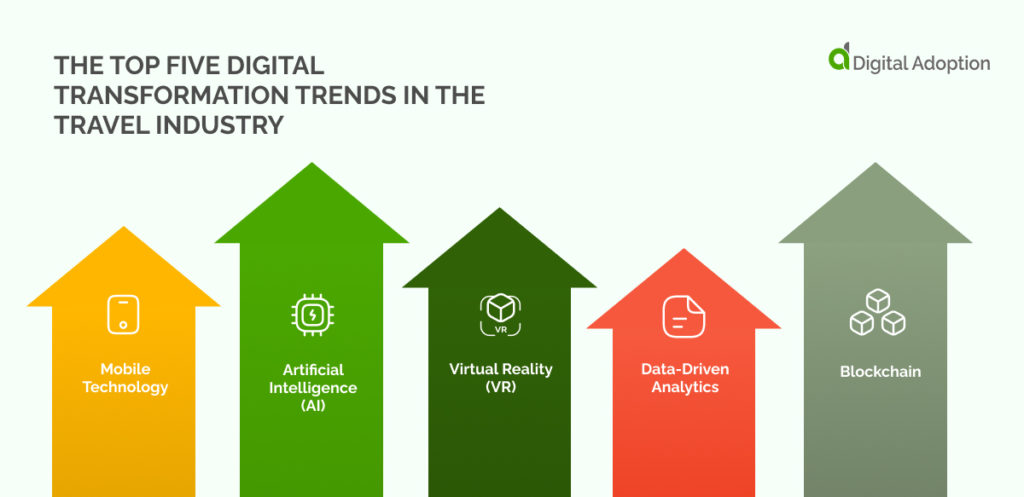
So what are the top digital transformation trends in the travel industry? Here are five of the most important ones:
Mobile Technology
As we’ve already discussed, mobile technology is changing how travelers book their trips and navigate their destinations. In addition, it’s also being used to create new experiences – such as augmented reality (AR) tours that allow people to explore a destination without leaving their homes.
Artificial Intelligence (AI)
Artificial intelligence (AI) is used in several ways throughout the travel industry. For example, some airlines use it to provide customer service, while others use it to improve flight safety. And hotels are starting to use AI to personalize the guest experience by offering custom recommendations based on past stays.
Virtual Reality (VR)
VR is being used to give travelers a taste of their destination before they even leave home. For example, Marriott Hotels has launched a VR experience that allows people to “stay” in one of their properties and explore the surrounding area. And some tour operators are using VR to create virtual tours of popular destinations.
Data-Driven Analytics
Data-Driven analytics is being used by travel companies to better understand their customers and what they want. This information can then be used to improve the customer experience – for example, by offering custom recommendations or providing discounts on future bookings.
Blockchain
Blockchain is a digital ledger that can store transactional data. Some travel companies are already using it to store data about customer bookings and track luggage movement. And it has the potential to be used for a variety of other applications, such as identity verification and fraud prevention.
Digital transformation is currently having a major impact on the travel industry – and this will likely continue in the future. So, staying up-to-date with the latest trends and technologies is essential if you’re involved in the travel industry. Otherwise, you risk being left behind.
Omnichannel Sales and Marketing for the Travel Industry
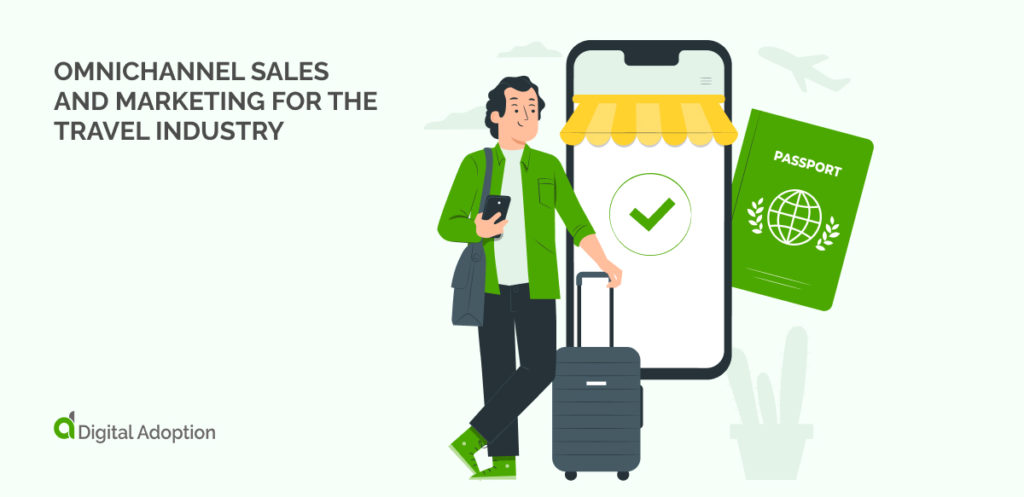
Digital transformation has changed how travelers book their trips – and it’s also changing how travel companies sell their products. In particular, there has been a shift from traditional offline sales and marketing methods to omnichannel sales and marketing.
Omnichannel sales and marketing is an approach that uses a combination of channels (such as online, offline, social media, etc.) to reach customers. And travel companies must adopt this approach because travelers use various channels to research and book their trips.
For example, a traveler might start by doing some initial research on Google before moving on to reading reviews on TripAdvisor. They might then visit the websites of various hotels and airlines to compare prices. And finally, they might book their trip on an online travel agency (OTA) such as Expedia.
If a travel company wants to reach this traveler, they need to have a presence on all these channels. They also need to ensure that their sales and marketing messages are consistent across all these channels. Otherwise, they risk losing the customer’s attention and their business.
The Rise Of Digital Tourism
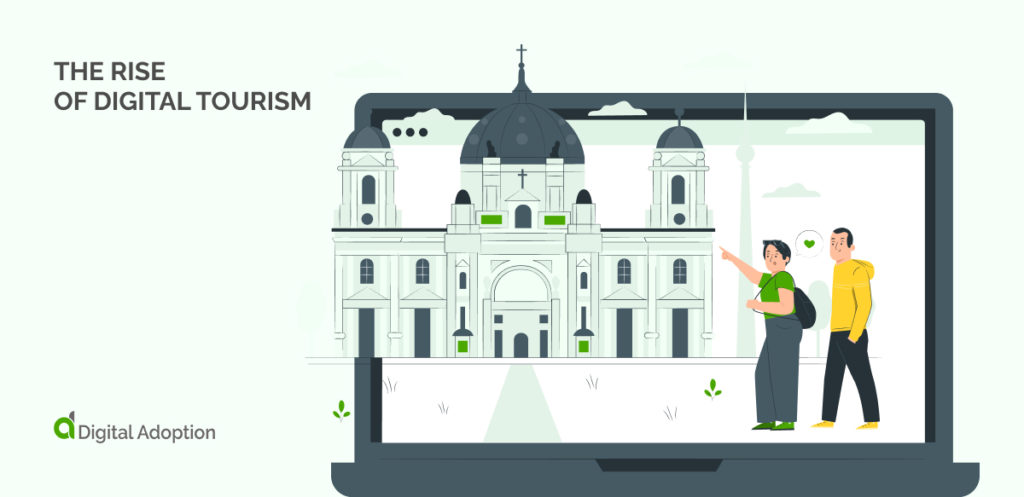
Digital transformation is also changing the way that people travel. In particular, there has been a rise in digital tourism, defined as “the use of digital technologies to enhance the experience of tourists and visitors.”
One example of digital tourism is mobile apps to help people navigate their destinations. Google Maps is one of the most popular navigation apps, but many destination-specific apps can be used to find attractions, restaurants, and other businesses.
Another example of digital tourism is the use of social media to share travel experiences. Hashtags such as #travelgram and #wanderlust are often used by travelers to share photos and videos of their trips with friends and followers. And some destinations are even using social media to market themselves – for example, the city of Las Vegas has its own Instagram account with over two million followers.
The Evolution Of The Travel Industry: DX
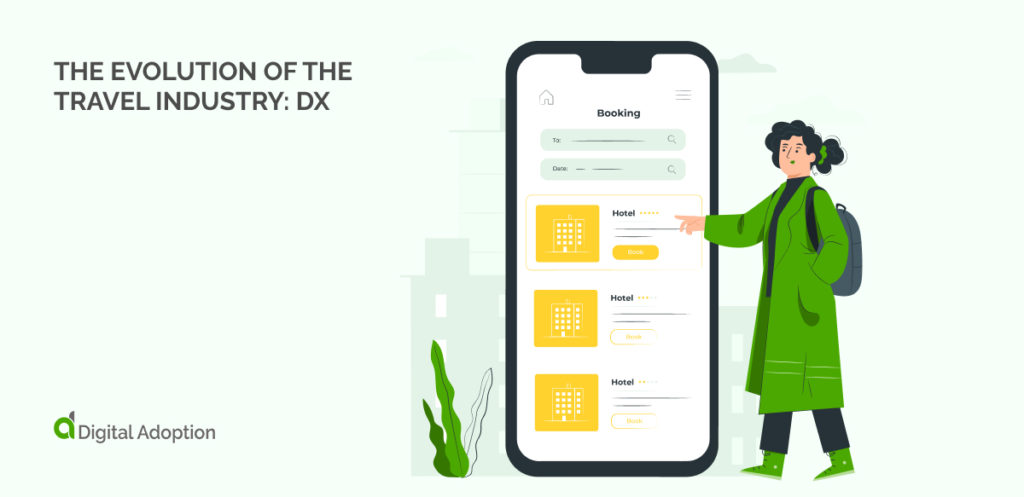
Some of the most significant changes that we can expect to see in the future include:
- A continued shift from offline to online sales and marketing
- An increase in personalization
- The use of data analytics to improve the customer experience
- The adoption of new technologies, such as blockchain, AR, and VR
The digital transformation of the travel industry is inevitable. It has already started and is continuing to evolve at a rapid pace. Travel companies must be aggressive about adopting new digital innovations and processes to stay ahead of the curve. Otherwise, they risk being left behind by their competitors.
Digital transformation can seem daunting, but it doesn’t have to be. By taking things one step at a time, you can transition to a digital-first business model. And if you need help, plenty of digital marketing agencies specialize in the travel industry and can assist you with your digital transformation journey.
The Future Of Travel
Digital transformation is set to continue reshaping the travel industry in the years to come. Some of the most important trends to watch out for include:
The continued rise of digital tourism
- The increasing use of data analytics
- The adoption of blockchain technology
- The growth of omnichannel sales and marketing
What does this all mean for the future of travel? It’s hard to say for sure. But one thing is certain – digital transformation is here to stay, changing how we travel. A more critical question is how digital transformation (DX) will impact the travel industry in the digital era.

